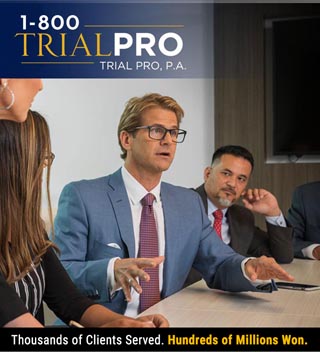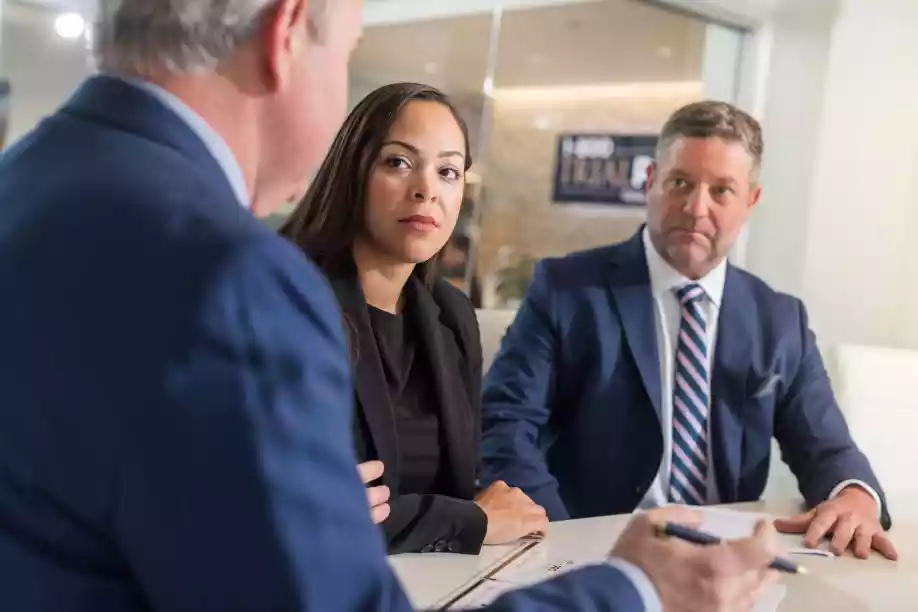Most personal injury claims resolve at some point before going into litigation but, when a settlement is not reached despite every effort to do so, the decision may be made to file a lawsuit. At the time that it becomes clear that no acceptable pre-suit settlement offer will be made, a lawsuit may be filed. According to the most recently available statistics, about ninety-five (95%) percent of pending lawsuits end in a pre-trial settlement. This means that just one (1) in twenty (20) personal injury cases is resolved in a court of law by a judge or jury. Discovery is a pre-trial procedure in a lawsuit in which each party, through the law of civil procedure, can obtain evidence from the other party or parties by means of discovery devices such as interrogatories, requests for production of documents, request for admissions and depositions.
Discovery is the gathering of evidence. The parties have thirty (30) to forty-five (45) days to answer and produce the documents. The purpose of discovery is to make the parties aware of the evidence that may be presented at trial. This process prevents “trial by ambush,” where one side does not learn of the other side's evidence or witnesses until the trial. There are basically six (6) types of discovery in civil court:
- Interrogatories
- Requests for Production of Documents
- Requests for Admissions
- Depositions
- Subpoenas Duces Tecum
- Physical and Mental Examinations
Mainly, interrogatories are written questions which you will need to answer under oath at the request of the defendant’s attorney. These questions are called “Interrogatories.” Your attorney can answer by responding to Objection. If a question violates Florida's Constitutional right to privacy, or is overly intrusive and completely useless and consequentially, it is unlikely to lead to the discovery of admissible evidence. Upon completing the responses to your interrogatories, you will sign a verification page. A verification page is a document you will sign to verify that everything your attorney or attorney’s staff is true and to the best of your knowledge. It is a document that will be notarized. If you do not answer truthfully, it could damage the value of your case and any possible settlement. More importantly, you can also commit fraud or perjury, and this most likely terminates your case. There are also social media interrogatories which are questions specifically related to any and all social media outlets you might have online. Again, it is very important that you answer all questions truthfully and do not erase any social media pages.
If someone does not answer (usually within 30 days) discovery questions. The asking party can then file a motion to compel with the courts. Technically the person that does not answer can be found in contempt and may have to pay the other parties attorney’s fees. When a discovery request is objected to, the requesting party may seek the assistance of the court by filing a motion to compel discovery.
There are also “Requests for Document Production” which you may need to answer regarding copies of certain documents we will need which may be in your possession or control. It is very important that you answer all questions as truthfully and accurately as you can because any omissions or misrepresentations can be used against you later by the defense.
Request for Admissions is a list of questions that the defendant wants you to admit or deny about policy coverages, whether it be Personal Injury Protection (PIP), Medical Payments (Med Pay) coverage, health insurance coverage, any deductibles. Also, questions regarding vehicles involved in the accident, medical treatment, and wage loss.
There is no given time where all cases settle or guarantee that any particular case will end in a settlement. However, the majority of civil lawsuits (which includes personal injury cases) settle before trial. Many of these cases will settle at the close of the discovery phase, which includes depositions. Taking depositions is one of the most common methods of discovery. A deposition is a question and answers session in which the defense attorney will ask you a series of questions under oath. These questions include but are not limited to the facts of the accident, your injuries, your medical treatment, the effect of your injuries on your activities/life, and any previous or subsequent accidents. A deposition usually lasts between 1-4 hours and is one of the most important components of your case because the defense is also assessing what kind of appearance you would make in front of a jury. If at any point, there is a question that your attorney does not want you to answer, he or she will object. For instance, any communication you had with your attorney or attorney’s staff is considered privileged communication. Privileged communication is an interaction between two parties in which the law recognizes a private, protected relationship. Whatever is communicated between the parties remains confidential, and the law cannot force their disclosure. For example, if a defense attorney asks you who referred you to a specific doctor and it was your attorney. Then you do not need to answer that question.
Subpoenas Duces Tecum is a type of subpoena that requires the witness to produce a document or documents pertinent to a proceeding such as a deposition or examination. From the Latin duces tecum, meaning "you shall bring with you".
As part of the discovery process, a defendant may require the opposite party to see a doctor and submit to a physical or mental examination. This usually happens in cases where the action is for personal injuries.
As a result, discovery is a pre-trial procedure in a lawsuit in which each party, through the law of civil procedure, can obtain evidence from the other party or parties by means of discovery devices such as interrogatories, requests for production of documents, request for admissions and depositions. It is important to answer truthfully and get the advice of an attorney when answering these questions. If you need help, you can speak to an experienced Central Florida personal injury and car accident lawyer at Trial Pro. Call us at Trial Pro, P.A at-1-800-Trial Pro.











